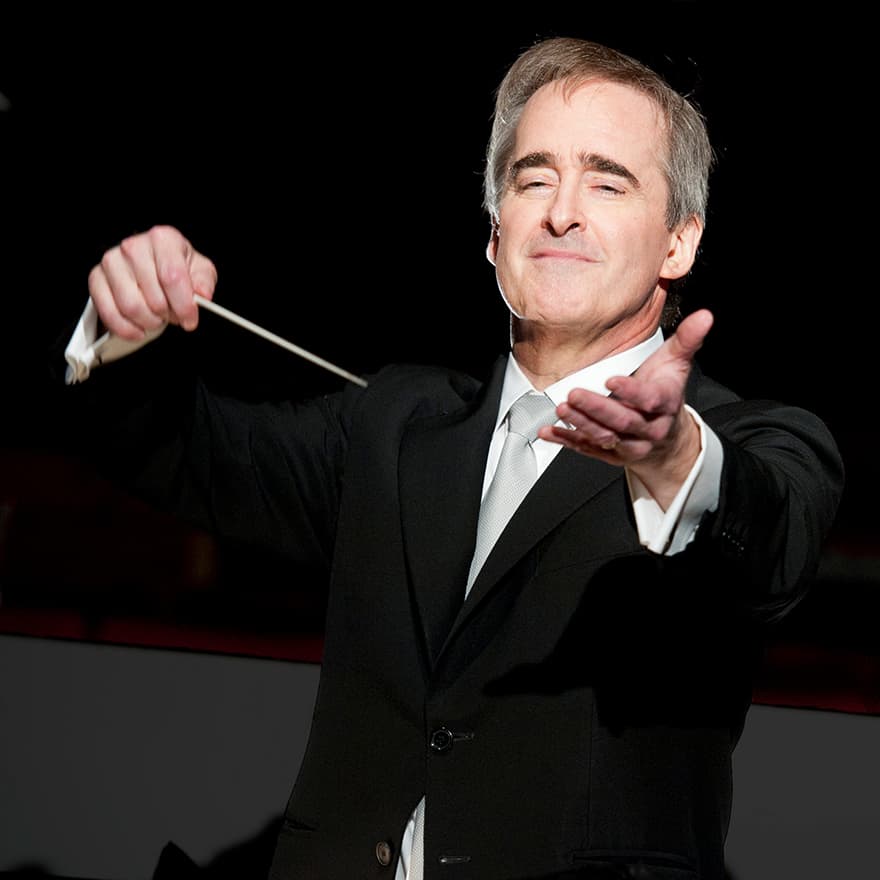
James Conlon has been LA Opera's Richard Seaver Music Director since 2006.
Since his debut that year with La Traviata, he has conducted 67 different operas and more than 450 performances to date with the company.
(Click here to visit James Conlon's Corner, where you can find essays, videos and conversations he has created especially for LA Opera.)
Internationally recognized as one of today’s most versatile and respected conductors, James Conlon has cultivated a vast symphonic, operatic and choral repertoire. Since his 1974 debut with the New York Philharmonic, he has conducted virtually every major American and European symphony orchestra, and at many of the world’s leading opera houses including the Metropolitan Opera. Through worldwide touring, an extensive discography and filmography, numerous writings, television appearances, and guest speaking engagements, Conlon is one of classical music’s most recognized and prolific figures.
Conlon has been Principal Conductor of the RAI National Symphony Orchestra in Torino, Italy (2016–20); Principal Conductor of the Paris Opera (1995–2004); General Music Director of the City of Cologne, Germany (1989–2003), simultaneously leading the Gürzenich Orchestra and the Cologne Opera; and Music Director of the Rotterdam Philharmonic Orchestra (1983–91). Conlon was Music Director of the Ravinia Festival (2005–15), summer home of the Chicago Symphony, and is now Music Director Laureate of the Cincinnati May Festival―the oldest choral festival in the United States―where he was Music Director for 37 years (1979–2016), marking one of the longest tenures of any director of an American classical music institution. He also served as Artistic Advisor of the Baltimore Symphony Orchestra (2021–2023). He has conducted over 270 performances at the Metropolitan Opera since his 1976 debut. He has also conducted at leading opera houses and festivals such as the Vienna State Opera, Salzburg Festival, La Scala, Teatro dell’Opera di Roma, Mariinsky Theatre, Covent Garden, Chicago Lyric Opera, Teatro Comunale di Bologna, and Teatro del Maggio Musicale Fiorentino.
As Music Director of LA Opera, Conlon has led more operas than any other conductor in company history. Highlights of his LA Opera tenure include the company’s first Ring cycle; initiating the groundbreaking Recovered Voices series, an ongoing commitment to staging masterpieces of 20th-century European opera suppressed by the Third Reich; spearheading Britten 100/LA, a city-wide celebration honoring the composer’s centennial; and conducting the West Coast premiere of The Anonymous Lover by Joseph Bologne, Chevalier de Saint-Georges, a prominent Black composer in 18th-century France.
Conlon opens his 18th season at LA Opera conducting Mozart’s Don Giovanni directed by Kasper Holten. His groundbreaking Recovered Voices initiative, dedicated to rescuing works from historical neglect or censorship, returns to the company with a double-bill featuring the company premiere of William Grant Still’s Highway 1, USA in a new production directed by Kaneza Schaal, and a revival of Zemlinsky’s The Dwarf (Der Zwerg)—an opera that launched the Recovered Voices initiative in 2008—directed by Darko Tresnjak. He also conducts Verdi’s La Traviata—the first opera he led as Music Director of LA Opera—continuing his multi-season focus on the works of the great Italian composer. To date, Conlon has conducted more than 500 international performances of Verdi’s repertoire. Conlon closes his LA Opera season honoring the 100th anniversary of Puccini’s death, conducting Turandot, Puccini’s final opera composed in 1924.
Additional highlights of his season include returning to the Chicago Symphony Orchestra to lead Mendelssohn’s Elijah, and conducting Wagner’s Lohengrin at Deutsche Oper Berlin. He also returns to Switzerland’s Bern Symphony, where he is Principal Guest Conductor, to lead three programs including Schubert and Beethoven symphonies, a celebratory New Years Day concert, and a season finale with Shostakovich’s Symphony No. 5.
Conlon is dedicated to bringing composers silenced by the Nazi regime to more widespread attention, often programming this lesser-known repertoire throughout Europe and North America. In 1999 he received the Vienna-based Zemlinsky Prize for his work bringing the composer’s music to a broader audience; in 2013 he was awarded the Roger E. Joseph Prize at Hebrew Union College-Jewish Institute of Religion for his efforts to eradicate racial and religious prejudice and discrimination; and in 2007 he received the Crystal Globe Award from the Anti-Defamation League. His work on behalf of silenced composers led to the creation of The OREL Foundation, an invaluable resource on the topic for music lovers, students, musicians, and scholars; the Ziering-Conlon Initiative for Recovered Voices at the Colburn School; and a recent virtual TEDx Talk titled “Resurrecting Forbidden Music.”
Conlon is deeply invested in the role of music in civic life and the human experience. At LA Opera, his popular pre-performance talks blend musicology, literary studies, history, and social sciences to discuss the enduring power and relevance of opera and classical music. He also frequently collaborates with universities, museums, and other cultural institutions and works with scholars, practitioners, and community members across disciplines. He frequently appears throughout the country as a speaker on a variety of cultural and educational topics.
Conlon’s extensive discography and filmography spans the Bridge, Capriccio, Decca, EMI, Erato, and Sony Classical labels. His recordings of LA Opera productions have received four Grammy Awards, two respectively for John Corigliano’s The Ghosts of Versailles and for Kurt Weill’s Rise and Fall of the City of Mahagonny. Additional highlights include an ECHO Klassik Award-winning recording cycle of operas and orchestral works by Alexander Zemlinsky; a CD/DVD release of works by Viktor Ullmann, which won the Preis der deutschen Schallplattenkritik; and the world-premiere recording of Liszt’s oratorio St. Stanislaus.
Conlon holds four honorary doctorates, was one of the first five recipients of the Opera News Awards, and was distinguished by the New York Public Library as a Library Lion. He received a 2023 Cross of Honor for Science and Art (Österreichische Ehrenkreuz für Wissenschaft und Kunst) from the Republic of Austria, and was named Commendatore Ordine al Merito della Repubblica Italiana by Sergio Mattarella, President of the Italian Republic. He was also named Commandeur de L’Ordre des Arts et des Lettres by the French Minister of Culture and, in 2002, personally accepted France’s highest honor, the Legion d’Honneur, from then-President of the French Republic Jacques Chirac.
Learn more at JamesConlon.com.
Mr. Conlon’s first season as Artistic Advisor of the Baltimore Symphony Orchestra includes three weeks of concerts, starting with an October 2021 program of music by historically marginalized composers. The featured works are Alexander Zemlinsky’s Die Seejungfrau (The Mermaid), which is the piece that sparked Mr. Conlon’s interest in suppressed music from the early 20th century, and William Levi Dawson’s Negro Folk Symphony, which reflects a theme that will recur throughout Mr. Conlon’s advisorship—the bringing of attention to works by American composers neglected due to their race. He returns in February 2022 for performances including Beethoven’s Eighth Symphony and the final scene of Wagner’s Die Walküre, with guest artists Christine Goerke and Greer Grimsley. The BSO season concludes in June 2022 with Mr. Conlon conducting an orchestra co-commission from Wynton Marsalis, Rachmaninoff’s Rhapsody on a Theme of Paganini with Beatrice Rana, and Shostakovich’s Seventh Symphony (“Leningrad”). As Artistic Advisor, in addition to leading these performances, Mr. Conlon will help ensure the continued artistic quality of the orchestra and fill many duties off the podium, including those related to artistic personnel—such as filling important vacancies and attracting exceptional musicians.
Additional highlights of Mr. Conlon’s season include Bach’s St. Matthew Passion at Rome Opera, Wagner’s The Flying Dutchman at New National Theatre, Tokyo, the Paris Opera’s Gala lyrique with Renée Fleming, and concerts with the Cincinnati Symphony Orchestra (Dawson’s Negro Folk Symphony and works by Beethoven and Bernstein), Gürzenich Orchester Köln (Sinfoniettas by Zemlinsky and Korngold), Hamburg Philharmonic State Orchestra (works by Shostakovich and Zemlinsky), and at Maggio Musicale Fiorentino. Mr. Conlon’s 2021/22 season follows a spring and summer in which he was highly active amidst the re-opening of many venues to live performance. These engagements included concerts with the Detroit Symphony Orchestra, Deutsche Symphonie-Orchester Berlin, Orchestra del Teatro Comunale di Bologna, and RAI National Symphony Orchestra. He also led a series of performances in Spain scheduled around World Music Day (June 21). In Madrid, over a period of two days, he conducted the complete symphonies of Schumann and Brahms in collaboration with four different Spanish orchestras: the Orquesta Nacional de España, Orquesta Sinfónica de Galicia, Orquesta Sinfónica de Castilla y León, and Joven Orquesta Nacional de España (JONDE). He subsequently conducted JONDE at the Festival de Granada and Seville’s Teatro de la Maestranza. Additional summer 2021 engagements included the Aspen, Napa, Ravello, and Ravinia Festivals.
In an effort to call attention to lesser-known works of composers silenced by the Nazi regime, Mr. Conlon has devoted himself to extensive programming of this music throughout Europe and North America. In 1999 he received the Vienna-based Zemlinsky Prize for his efforts in bringing that composer’s music to international attention; in 2013 he was awarded the Roger E. Joseph Prize at Hebrew Union College-Jewish Institute of Religion for his extraordinary efforts to eradicate racial and religious prejudice and discrimination; and in 2007 he received the Crystal Globe Award from the Anti-Defamation League. His work on behalf of suppressed composers led to the creation of The OREL Foundation, an invaluable resource on the topic for music lovers, students, musicians, and scholars; the Ziering-Conlon Initiative for Recovered Voices at the Colburn School; and a recent virtual TEDx Talk titled “Resurrecting Forbidden Music.”
Mr. Conlon is an enthusiastic advocate of public scholarship and cultural institutions as forums for the exchange of ideas and inquiry into the role music plays in our shared humanity and civic life. At LA Opera, he leads pre-performance talks, drawing upon musicology, literary studies, history, and social sciences to contemplate—together with his audience—the enduring power and relevance of opera and classical music in general. Additionally, he frequently collaborates with universities, museums, and other cultural institutions, and works with scholars, practitioners, and community members across disciplines. His appearances throughout the country as a speaker on a variety of cultural and educational topics are widely praised.
Mr. Conlon’s extensive discography and videography can be found on the Bridge, Capriccio, Decca, EMI, Erato, and Sony Classical labels. His recordings of LA Opera productions have received four Grammy Awards, two respectively for John Corigliano’s The Ghosts of Versailles and Kurt Weill’s Rise and Fall of the City of Mahagonny. Additional highlights include an ECHO Klassik Award-winning recording cycle of operas and orchestral works by Alexander Zemlinsky; a CD/DVD release of works by Viktor Ullmann, which won the Preis der deutschen Schallplattenkritik; and the world-premiere recording of Liszt’s oratorio St. Stanislaus.
Mr. Conlon holds four honorary doctorates and has received numerous other awards. He was one of the first five recipients of the Opera News Awards, and was honored by the New York Public Library as a Library Lion. He was named Commendatore Ordine al Merito della Repubblica Italiana by Sergio Mattarella, President of the Italian Republic. He was also named Commandeur de L’Ordre des Arts et des Lettres by the French Minister of Culture and, in 2002, personally accepted France’s highest honor, the Legion d’Honneur, from then-President of the French Republic Jacques Chirac.
Learn more at JamesConlon.com.



